Studying the Gap Between Indigenous People and Higher Education
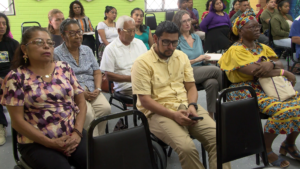 Today, Galen University and its partners launched a regional research project to collect data on indigenous communities in Central America and their relationship with the pursuit of higher education. The study is spearheaded by a team in Mexico and has selected Belize to be one of the focal points. Galen University’s research team provided more details about the project. Here’s News Five’s Britney Gordon with the story.
Today, Galen University and its partners launched a regional research project to collect data on indigenous communities in Central America and their relationship with the pursuit of higher education. The study is spearheaded by a team in Mexico and has selected Belize to be one of the focal points. Galen University’s research team provided more details about the project. Here’s News Five’s Britney Gordon with the story.
Britney Gordon, Reporting
Roughly eleven percent of Belize’s population is comprised of indigenous people. Of that eleven percent, less than a third have sought higher education. A new study has been launched to analyze the factors that contribute to this trend. The Supporting Policies and Practices for Indigenous Peoples in Institutions of Higher Education and Academic Research in Central America Project was created to gather data on the phenomenon with the goal of curbing the numbers. Doctor Filiberto Penados provided us with some more details of the regional study.
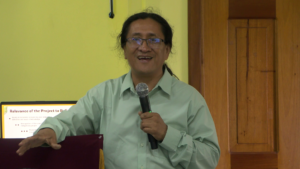
Filiberto Penados
Dr. Filiberto Penados, Research Director
“It’s a regional project that involves Mexico, Guatemala, Belize, and Costa Rica. And it really aims at understanding how indigenous peoples are participating in higher education. And what are the factors that influence their participation or lack of their participation? With a hope to generate intervention, policy, and ideas from changing the participation the rate of participation across the region, the participation of indigenous peoples in higher education tends to be low. Again, it’s the reason for the project.”
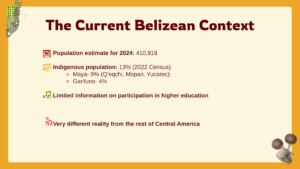 The three-year project is led by the Social Anthropology Research and Education Center of Mexico with support from the International Development and Research Center in Canada. Universities across the region were chosen to participate in the study. The team felt it necessary that Belize be an active participant in the study because of its unique culture as the only English-speaking country in the region.
The three-year project is led by the Social Anthropology Research and Education Center of Mexico with support from the International Development and Research Center in Canada. Universities across the region were chosen to participate in the study. The team felt it necessary that Belize be an active participant in the study because of its unique culture as the only English-speaking country in the region.
Dr. Filiberto Penados
“The first year is the data collection so both in terms of finding out from the institutions their enrollments, their graduation rates, who is participating, who is not participating, who is dropping out, who is not dropping out, and the reasons why. This, in terms of indigenous peoples, of course. And so we’re gonna collect that data. And then in year two, by the middle of next year, we should have the results. We’re going to be able to present that and invite this network that I’m talking about, who can come and look at that and have a forum where we can generate some policy and intervention ideas and then focus on the dissemination, publication of the results in the third year.”
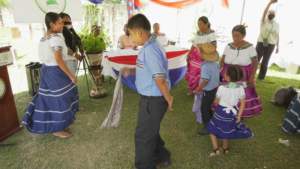 Often, Belize is excluded form regional studies, so this project shines a light on the valuable data in the small country. Each participating country has a lead university coordinating local data collection.
Often, Belize is excluded form regional studies, so this project shines a light on the valuable data in the small country. Each participating country has a lead university coordinating local data collection.
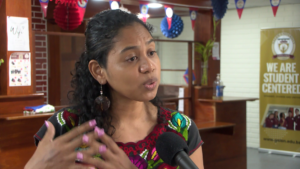
Lynmara Rosado-Lino
Lynmara Rosado-Lino, Research Assistant
“The end goal of the project with the policymaking, the development of new ideas, and perhaps even new ways of addressing this concern and incorporating Indigenous people into higher education, both as students, but also as decision makers, starts from now. So the aim is to build our network.”
Galen seeks to create a network of researchers from the Mayan and Garifuna communities, as well as the country’s other tertiary level institutions.
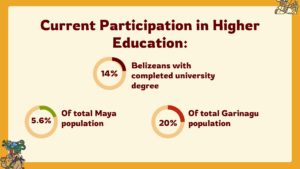 Lynmara Rosado-Lino
Lynmara Rosado-Lino
“We have communicated with the Office of Indigenous Peoples Affairs as well as the Indigenous Association of Belize National Indigenous Association and other stakeholders, other groups to include them within our network so that they may assist us both in tracking down our participants, gathering our data and then thereafter in the end to help us develop those policies, help us to generate ideas, to present those possible ideas, to other stakeholders that are also involved currently, like Ministry of Education and the various universities at LIB and have a conversation among all of us into, as to what we can do with this data .”
Collecting the data is just one part of the project’s objective. The teams are working towards creating a network of stakeholders to advocate for policies that will increase the number of Indigenous people in higher education and use the data to support their recommendations. Research Assistant, Lynmara Rosado-Lino, hopes that through the data, tertiary education institutes will also adapt their curriculums to be more inclusive of indigenous students.
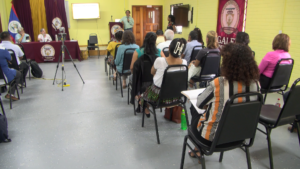 Lynmara Rosado-Lino
Lynmara Rosado-Lino
“The indigenous voice. I mean, Belize has such a rich Indigenous history. That’s where it all starts. So it is important that there’s a voice and a presence, and representation in our institutions of higher education. So it’s not jut about representation and getting Indigenous people into the schools but also that they are comfortable in these schools, that the indigenous ways of knowing are honored. So it’s not just so western-focused. These are the theories that come from outside, but also what are the theories that we have here when it comes to medicine, when it comes to social sciences. It exist, it’s a whole society. So there is definitely important ways of knowledge that can be incorporated into our curriculum and higher education systems,”
Belizeans who want to be a part of this study or know someone who may assist with data collection are invited to contact Galen University for more information. Britney Gordon for News Five.





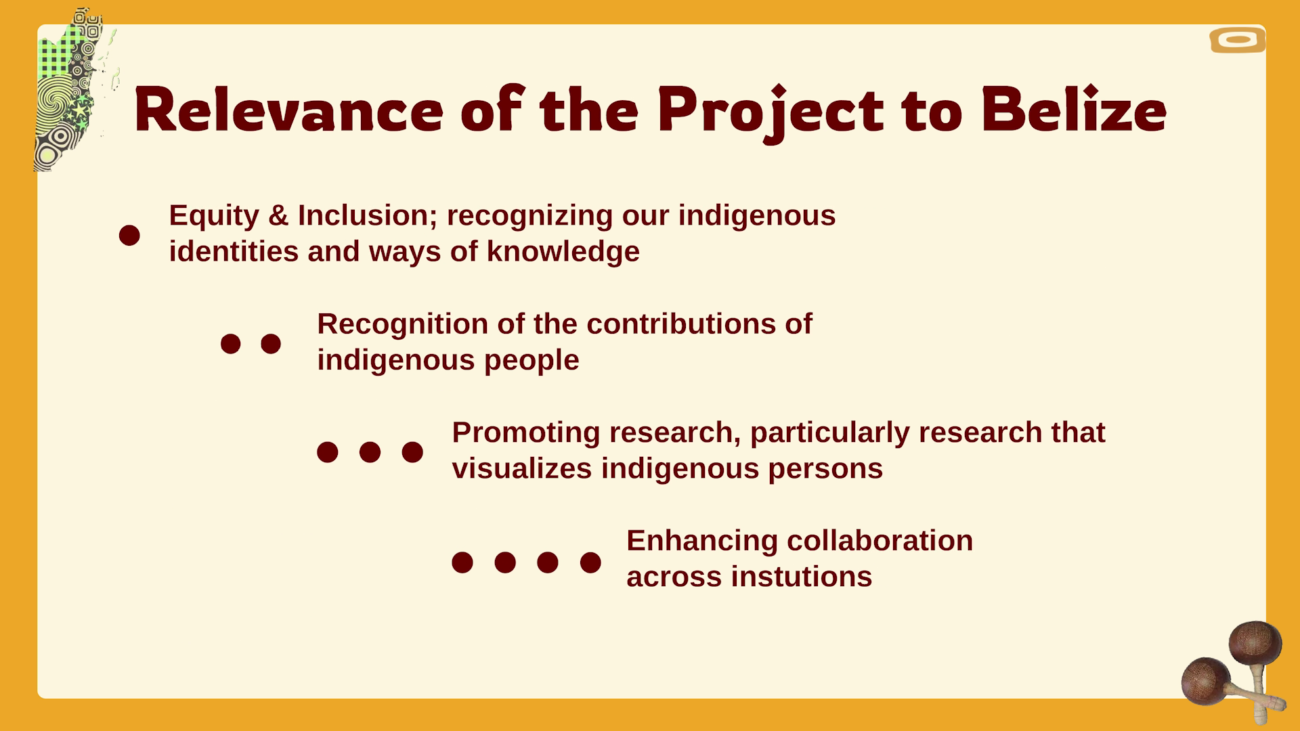
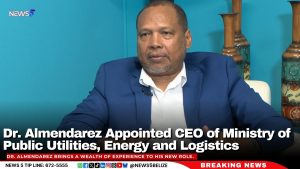
Facebook Comments